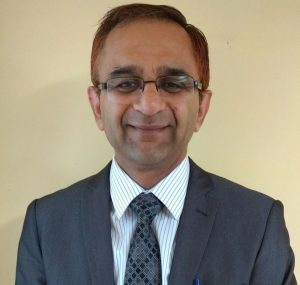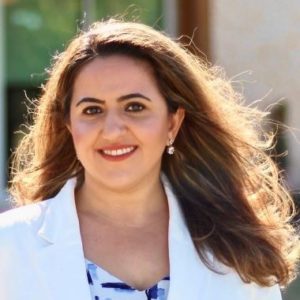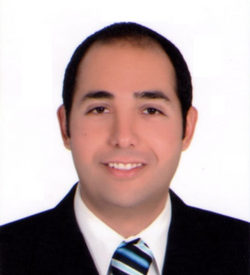I really enjoyed this class. The class was very detailed and organized. Thanks, Emad!
Jamal Kessab – Certificate in Accounting Alumni, 2022
Online
Full-Time
18 weeks
(Including breaks)
Part-Time
40 weeks
(Including breaks)
$40 (Domestic)
$140 (International)
$3,450 (Domestic)
$4,485 (International)
+ textbook fee
~$1,150
Start Date
SUMMER SEMESTER
Full-Time
Program Duration: June 3, 2024 to October 4, 2024
Synchronous: Mondays, Wednesdays, and Fridays;Times: 9:00 am – 12:00 pm PST
Asynchronous: Tuesdays and Thursdays
All synchronous sessions are recorded and are available for asynchronous viewing for seven days after the synchronous session.
Apply NowSUMMER SEMESTER
Part-Time
Program Duration:July 9, 2024 to April 17, 2025
Synchronous: Tuesdays and Thursdays;Times: 5:00 pm – 8:00 pm PST
Download Brochure
I really enjoyed this class. The class was very detailed and organized. Thanks, Emad!
Jamal Kessab – Certificate in Accounting Alumni, 2022
So far my experience with Ashton college has been great. I hope my experience will be good in future. I am learning a lot from this college. The way of teaching is very excellent and understandable.
Ravinder Kumar Jakhu – Certificate in Accounting Alumni, 2022
John the instructor was very helpful and insightful. Instructors like this are able to convey the material in a manner that is concise and easy for everyone to understand. This is the second class I have taken with this instructor. Highly Recommend.
James MacDonlad – Certificate in Accounting Alumni, 2022
Unlock Your Path to Success with Our Certificate in Accounting Program (Online)
Are you aspiring to launch a rewarding career in the world of finance and accounting? Our Certificate in Accounting Program is your gateway to the thriving Canadian job market. Tailored to equip graduates with essential skills, this program paves the way for entry-level bookkeeping and diverse accounting roles across industries. Whether you're new to accounting or seeking to enhance your current expertise, our comprehensive curriculum will empower you with both theoretical knowledge and practical prowess.
Read our blog article: Exploring Accounting Assistant Jobs in Canada: Career, Salaries, and Opportunities
Holistic Accounting Education: Our program is meticulously crafted to provide a robust foundation in accounting techniques and procedures. You'll gain proficiency in navigating both manual and computerized accounting environments, ensuring you're well-versed for the dynamic industry landscape.
Practical Hands-On Training: Emphasis is placed on experiential learning, ensuring you not only understand concepts but can also apply them adeptly. Through practical, real-world exercises, you'll develop the confidence and skill set required for success in various accounting positions.
Open Doors for Everyone: Whether you're an absolute beginner or currently employed in an accounting role, this program is designed to cater to your needs. We welcome individuals from all backgrounds, providing a seamless learning journey for those with no prior accounting knowledge.
Thriving Demand: Canada's business landscape thrives on skilled accountants. The demand for qualified professionals is consistently high, ensuring a plethora of job opportunities across industries.
Stability and Prosperity: An accounting career promises more than just a job; it offers stability and competitive remuneration. In an ever-evolving economy, businesses rely on financial experts to maintain fiscal health, making your skills indispensable.
Diverse Avenues: Whether your interests lie in the public or private sector, the realm of accounting welcomes you. As a financial manager, you play a pivotal role in organizational efficiency, propelling your professional growth.
Graduates of this program can apply for a CBA membership to become Registered Professional Bookkeepers with the association. The CBA is a national non-profit association established in 2003. The CBA advances bookkeeping professionals in Canada and furthers the bookkeeping industry.
Graduates will have the opportunity to fast track towards the nationally recognized Certified Professional Bookkeeper (CPB) designation. Students of the Certificate in Accounting have access to a preferred student membership rate.
Upon completion of the Certificate in Accounting program (Online), students will be able to:
This course provides students with a basic understanding of the Income Tax Act and regulations to determine the Income Tax Liability as it applies mainly to individuals and businesses. The course allows students to learn how to prepare a simple tax return for an individual resident of Canada and to use the knowledge gained from this course to solve problems relating to the taxation of individuals resident and non-resident of Canada. Students will also study GST and HST. The course is a comprehensive and practical approach to federal and provincial legislation relating to the payroll function.
Subject to change without notice
 Saeed Ahmed
Saeed AhmedDuring his 15 years as a professional accountant, Saeed Ahmed has collected valuable experiences in Canada. He has been a financial manager in the private sector, a public service officer with the Federal government, a business owner and recently a business teacher. He is inspired to pass along the best that he has learned. Saeed appreciates good, healthy discussions that result in productive action. His teaching style is to learn from stories, anecdotes, common sense and critical thinking to discover the reasoning behind ideas and put everything into practice.
 Obada Al-Dimashki
Obada Al-DimashkiObada Al-Dimashki is an engaging and interpersonal business professor with extensive experience teaching at various post-secondary institutions across Canada. His teaching has covered several business topics including international business, finance, supply chain and management. Along with his teaching, His industry experience includes international supply chain management at a major industrial group and he has served as a reserve Combat Logistics Officer with the Canadian Armed Forces.
 Effren Atienza
Effren AtienzaEffren Atienzais an Internationally Trained Certified Public Accountant (ITA-CPA); has a Master’s in Business Administration (by Correspondence); and obtained the Certified Payroll Manager (CPM) designation from the National Payroll Institute.
He is also a Professional Bookkeeper and has multiple QuickBooks certifications from American and Canadian associations. He has more than 30 years of work experience in the field of accounting, payroll, and human resources working as an Accountant, Payroll Specialist, Accounting Manager, and Financial Controller. Presently, he is working on his own accounting & consulting firm as Chief Financial Officer & Administrator.
 Sanjay Bhatia
Sanjay BhatiaSanjay Bhatia is a Chartered Professional Accountant (CPA) with more than 15 years of international experience working in the fields of bookkeeping, accounting, and taxation in the United States, India and Canada. He is passionate about developing technical and professional skills of students demanded by employers in today’s highly competitive industry. He believes in sharing his wealth of experience and knowledge by imparting result-oriented education to future professionals.
 Cynthia Ellacott
Cynthia EllacottCynthia Ellacott is a Chartered Professional Accountant (CPA) who has worked to enhance both large and small businesses by reviewing processes and making recommendations for changes. She has worked in the accounting field since she was a teenager in her family business. She started doing ledger accounting when she was thirteen before the start of accounting programs and obtained her accounting designation in 2000.
 Zahra Kawa
Zahra KawaZahra comes to Ashton with over 15 years of experience in accounting and finance. Having worked in different capacities in public practice, private, public and not-for-profit organizations, her experience spans diverse industries such as aviation, transportation, construction, and telecommunications. As an educator, she has experience in facilitating CPA modules, in-class workshops and teaching CPA candidates. Zahra holds an Honours Degree in Commerce and has a Certified Professional Accountant (CPA) designation for British Columbia.

Tenaj Patterson is a graduate of an M.Ed in Business, an Honours Degree in Business Administration and has 10+ years in the accounting sector. As an educator, she has focused her career on preparing the future professionals of tomorrow. She has taught a plethora of courses within the business sector at various Universities and Colleges in Canada for the past 7 years.
 Dilip Prabhu
Dilip PrabhuDilip is a Chartered Accountant from India. He also has a Bachelors of Science in Economics/Mathematics from the University of Alberta. Dilip has passed the Chartered Financial Analyst (CFA) Level 1 exam and has worked as a financial controller in Canada for more than seven years. Prior to moving to Canada, Dilip was a Regional Financial Controller managing a large team based in Dubai, UAE for almost eight years. Dilip was in charge of finance and administration, overseeing many countries in the Gulf. He has extensive experience in financial accounting, auditing, budgeting, management discussion and analysis, and preparing business plans.
 Emad Tawadrous
Emad TawadrousEmad Tawadrous is a Certified Management Accountant (CMA) who was working as a taxation lecturer assistant for two years and as an accounting instructor for the past five years. He teaches accounting fundamentals, financial reporting, managerial accounting, cost accounting, payroll, computerized accounting with Sage and QuickBooks, management information systems, business math, and corporate and personal taxation.
 Timothy Troy
Timothy TroyTimothy holds an MBA from the Smith School of Business at Queens University, where he also completed the Centre for Social Impact’s graduate program in socially responsible leadership. He also attended the Schulich School of Business at York University, where he completed an undergraduate degree in Economics & Business. Timothy is a professional member of the Institute of Corporate Directors, Institute of Internal Auditors, Chartered Professionals in Human Resources and the Society for Human Resources Management and continues to serve on a variety of non-profit and independent corporate boards. Timothy has also completed Osgoode Hall Law School’s program in Indigenous Peoples and Canadian Law and is an avid runner, cyclist and conservationist who truly enjoys teaching, supporting and mentoring others.
 Fred Zhuang
Fred ZhuangFred Zhuang is a CPA. He is engaged in the automotive industry. As the controller, he oversees accounting, payroll, tax and year-end. He is specialized in financial reporting, management accounting, finance and performance management. He also serves on non-profit boards as the treasurer and helps Canadians with personal tax during tax season. He is looking to share his experience with students and ensure their success in the accounting profession.
 Arina Rusu, CPA
Arina Rusu, CPAEducation is Arina’s passion, exemplified by her work at both Ashton College and the University of Toronto, as well as throughout her teaching career. Arina believes that helping students realize their potential is one of the most rewarding experiences and she is always looking for ways to enhance the classroom learning experience and share the practical application of concepts. Arina has over 7 years of experience in complex accounting areas, including budgeting and financial planning, internal controls and audit, and corporate accounting. She has experience in both the private industry and the public sector and is currently working in a senior finance role for the federal government. Arina is a CPA and holds a Bachelor of Commerce from the University of Toronto.
 Basit Bangash
Basit BangashBasit Bangash holds a Bachelor of Business Administration (Honours) in Finance and a Master of Business Administration from Pakistan. He has also earned a Master of Management and Organizational Analysis from Warwick Business School in the UK and is currently pursuing the CPA designation in Alberta. With over 15 years of experience in Canada and internationally, he has worked in academia, banking, consultancy, and healthcare at various managerial levels.
Basit has been engaged in teaching and training in accounting, finance, management, business, and organizational studies in Canada and other countries. He strongly believes that learning is an ongoing process and views teaching and learning as interactive and two-way communication.
 Aniket Naik
Aniket NaikProfessor Naik holds a CPA designation and an MBA from the Schulich School of Business at York University. He is currently pursuing his doctoral degree remotely from Aston University in the UK. He brings approximately 7 years of teaching experience, having taught at colleges and universities in the Middle East and Canada. Professor Naik is presently working at the University of Prince Edward Island as an Assistant Professor of Accounting in the Faculty of Business. In his downtime, Professor Naik enjoys running and playing bass.

Egbal Eltahir earned an MA in Economics from the University of Ottawa and an MSc in Accounting from KSU. She is currently a PhD Candidate at the University of Walden. Egbal has significant experience in lecturing, conducting economic research, accounting, taxation, and financial services. She considers herself a quick learner with a proven ability to interpret and analyze complex information. She frequently adapts by utilizing various computer programs to enhance work efficiency. Egbal is enthusiastic about being a faculty member at Ashton College, where she can collaborate with students to advance their careers.

Changmin Lee is a Chartered Professional Accountant with experience in audit with a Big Four accounting firm as well as in the industry. Changmin’s industry experience consists of retail, apparel and health care in various roles including as head of finance. Changmin’s industry experience spans retail, apparel, and healthcare in various roles, including as head of finance. Additionally, Changmin has experience in training professionals in auditing standards and assessing mock common final exams for candidates studying to become CPAs themselves.
Changmin has had incredible mentors through his educational and professional career, which greatly contributed to his success. Their impact has inspired Changmin to give back and assist in training the next generation of accountants. Changmin’s teaching philosophy is based on drawing real-life examples from his experience to complement the technical aspects of the course.

Daniel Elliot is a professional accountant with over twenty-five years of experience, having worked in various sectors including private industry, income tax audit, government, and the nonprofit sector. In his role as a Regional Comptroller within a federal government department, he successfully managed budgets and accounting operations while overseeing contracting, procurement, and material management. Outside the federal public service, Daniel served as the treasurer for two separate charities and held the position of Director of Finance for a medium-sized nonprofit organization. His experience in the private industry includes roles as a manufacturing cost accountant and general bookkeeper. In addition, Daniel has shared his knowledge by teaching at a business school, and he is recognized as a business author and learning facilitator.
Domestic students need ONE of the following:
And you must prove the following:
Are you a domestic student?
You must show your language proficiency in ONE of the following ways:
English is presumed to be the language of instruction in the following countries:
American Samoa, Anguilla, Antigua and Barbuda, Australia, Bahamas, Barbados, Belize, Bermuda, Botswana, British Virgin Islands, Cayman Islands, Dominica, Falkland Islands, Fiji, Gambia, Ghana, Gibraltar, Grenada, Guam, Guyana, Ireland, Jamaica, Kenya, Lesotho, Liberia, Malta, Mauritius, Montserrat, New Zealand, Nigeria, Seychelles, Sierre Leone, Singapore, South Africa, St Helena, St. Kitts and Nevis, St. Lucia, St. Vincent & The Grenadines, Tanzania, Trinidad & Tobago, Turks and Caicos Islands, Uganda, United Kingdom, United States of America, US Virgin Islands, Zambia, Zimbabwe
Approved English Language Proficiency Tests and Scores
International students need:
And you must prove the following:
Are you an international student?
You must show your language proficiency in ONE of the following ways:
English is presumed to be the language of instruction in the following countries:
American Samoa, Anguilla, Antigua and Barbuda, Australia, Bahamas, Barbados, Belize, Bermuda, Botswana, British Virgin Islands, Cayman Islands, Dominica, Falkland Islands, Fiji, Gambia, Ghana, Gibraltar, Grenada, Guam, Guyana, Ireland, Jamaica, Kenya, Lesotho, Liberia, Malta, Mauritius, Montserrat, New Zealand, Nigeria, Seychelles, Sierre Leone, Singapore, South Africa, St Helena, St. Kitts and Nevis, St. Lucia, St. Vincent & The Grenadines, Tanzania, Trinidad & Tobago, Turks and Caicos Islands, Uganda, United Kingdom, United States of America, US Virgin Islands, Zambia, Zimbabwe
Approved English Language Proficiency Tests and Scores
Do you identify as a mature student?
To qualify, you must meet the following requirements:
Application Requirements
Mature Students must submit ALL of the following:
Additional Requirements
You must meet all of the program-specific and non-academic requirements where listed. In some cases, you may need to complete a placement exam to determine academic readiness.
Tuition fees for the program are payable in instalments. The first instalment is due 2 weeks prior to the start date. Students with guaranteed funding arrangements will be exempt from this requirement provided they produce proof of funding before the cohort start date. International students are required to pay tuition fees in full at least two weeks prior to the start date.
All formats of the program are eligible for Canada Student Loans, other forms of government funding, and bank financing. However, students are responsible for making their own funding arrangements and are advised to contact the relevant funder well in advance of the start date to make an application.
Application and tuition fees for this program are as follows:
Note: Tuition fees do not include the cost of the required textbooks. The textbook fee is approximately $1150.
Ashton College does not sell textbooks directly. Students are required to purchase their textbooks through third-party vendors.
Get the Best of Both Worlds: Live and Asynchronous Learning at Ashton College
Ashton College understands that everyone learns differently, which is why we offer a unique blended learning approach for our live online courses. This approach combines the real-time interaction and immediate feedback of live sessions with the flexibility and self-paced learning of asynchronous materials.
Experience the benefits of both worlds:
Live Online Sessions:
Interact with instructors and classmates in real-time using interactive sessions, breakout rooms, and screen sharing.
Get instant feedback and ask questions for a deeper understanding.
Asynchronous Learning:
Learn at your own pace with recorded lectures, online readings, and discussion forums.
Review materials as needed and revisit difficult concepts for better comprehension.
We encourage you to participate in both components to maximize your learning experience:
Enjoy the interactivity and community of live sessions.
Benefit from the flexibility of studying at your own pace.
Technical Requirements:
Computer System: Fully functional computer with webcam, speakers, and microphone (headset recommended). Please note that Windows software is necessary for CA 03 and CA 04. Those with Chromebook or Mac will be required to download the Windows OS to their computer.
Internet Connection: Reliable high-speed internet connection.
Device: While accessible on smartphones and tablets, we recommend using a laptop or desktop computer for a better learning experience.
This program has been approved by the Private Training Institutions Branch (PTIB) of the Ministry of Post-Secondary Education and Future Skills.

